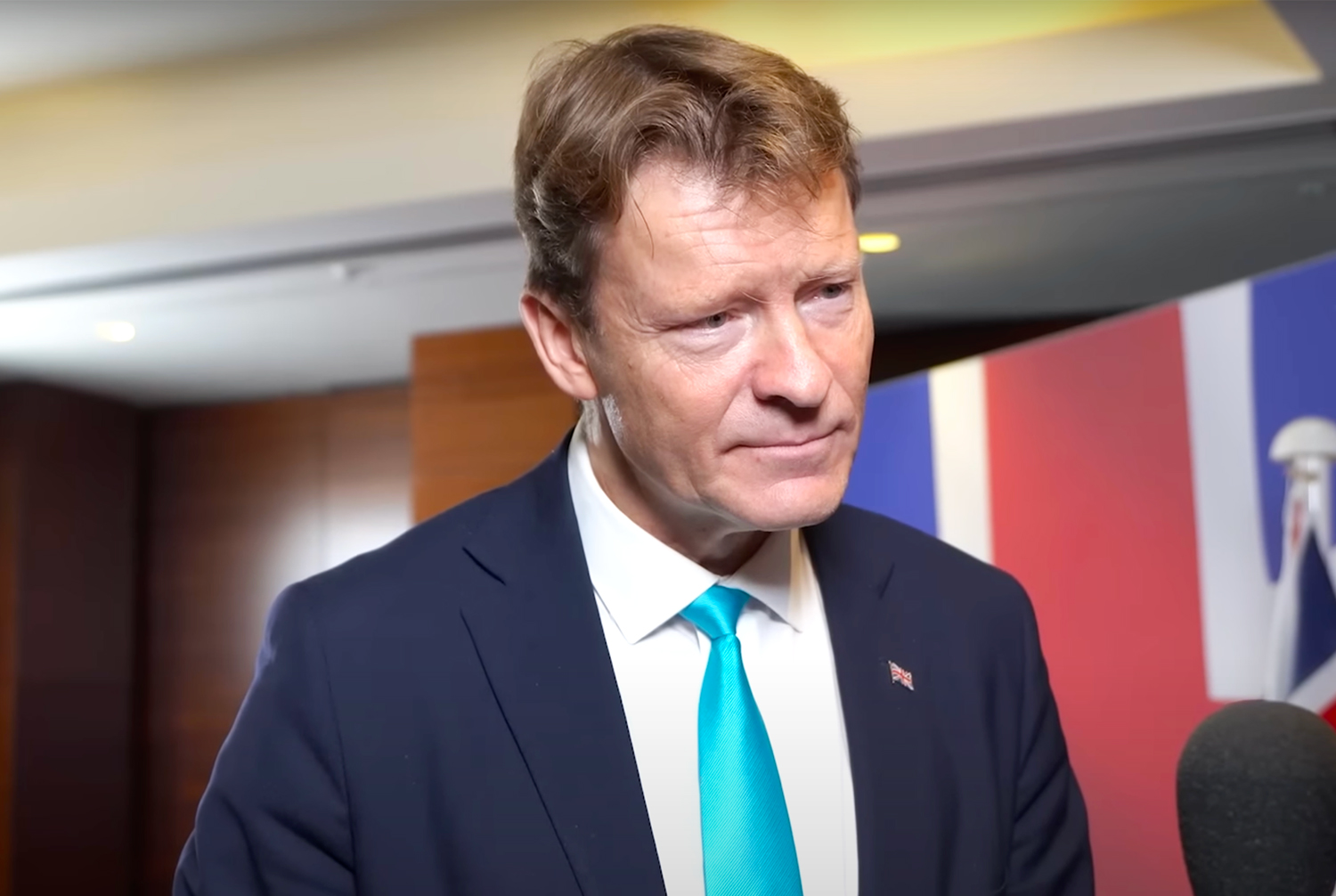The constituency held by Reform UK deputy leader Richard Tice, who campaigns against policies to tackle climate change, has been ranked as the second most at risk from the impacts of global warming.
Boston and Skegness is the seat in England that is most exposed to flooding, according to a Climate Risk Index produced by AXA, one of the world’s largest insurance companies.
The new report, released today in partnership with the research consultancy Public First, states that the proportion of homes at risk of flooding in Tice’s constituency is 4,000 times greater than Wirral West, the least vulnerable area in England.
When all climate factors are taken into account, including extreme heat and economic vulnerabilities, Boston and Skegness comes second in AXA’s Climate Risk Index, only topped by Lewisham North in London.
It estimates that homes and businesses in the areas that are exposed to the highest flooding risk – including Tice’s seat – face at least £818 million in financial costs from now until 2055.
Subscribe to our newsletter
Stay up to date with DeSmog news and alerts
Tice is a vocal climate science denier who has declared that “CO2 isn’t a poison. It’s plant food” and has suggested that climate change is caused by volcanoes.
Tice, who was elected to Parliament in July, recently told Politico that Reform UK will “fight the next election on scrapping net zero” – the UK’s target to reduce its greenhouse gas emissions.
As DeSmog revealed in June, Reform received £2.3 million from fossil fuel interests, polluters and climate deniers between the 2019 general election and the start of the 2024 campaign, amounting to 92 percent of its funding during this period.
AXA’s analysis also shows that the South Basildon and East Thurrock seat held by Reform MP James McMurdock is relatively exposed to climate change – coming 108 out of the 543 English constituencies assessed by the report.
As previously reported by DeSmog, Reform UK leader Nigel Farage’s seat of Clacton is also at risk of flooding due to climate change. The Environment Agency last year upgraded Clacton’s flood defences as part of a £10 million project to protect more than 3,000 properties and businesses from “climate change and sea level rise”.
Although two thirds of his constituents are concerned about climate change, Farage stated in an interview with climate science denier Jordan Peterson in July that: “I do find it extraordinary that people call carbon dioxide a pollutant, because as I understand it, plants don’t grow without carbon dioxide.”
He went on to claim that the UK’s climate policies “have transferred vast amounts of wealth from the poorest to the richest”.
Authors working for the world’s foremost climate science body, the UN’s Intergovernmental Panel on Climate Change (IPCC), have said that “it is a statement of fact, we cannot be any more certain; it is unequivocal and indisputable that humans are warming the planet”.
The IPCC has also stated that carbon dioxide “is responsible for most of global warming” since the late 19th century, which has increased the “severity and frequency of weather and climate extremes, like heat waves, heavy rains, and drought” – all of which “will put a disproportionate burden on low-income households and thus increase poverty levels.”
The new AXA report – which uses the firm’s in-house data as well as government information – also highlights that the seat belonging to the Flooding Minister, Labour’s Emma Hardy, is the third most vulnerable to flooding in England.
“As the effects of climate change become more frequent and intense, extreme weather events such as flooding and extreme heat pose increased risks to the UK’s communities, infrastructure, and public health”, the report states.
It adds: “Climate risks will not impact all places equally. Households and businesses around the country will be affected by varying economic and social costs. Key decision makers and stakeholders must understand who and where will be most impacted, and the extent to which those places can prepare, respond, and recover.”
Reform’s Climate Science Denial
Reform UK is one of several populist parties and groups in Europe and the U.S. which have attacked climate action as part of a broader “culture war” against progressive politics.
On 13 September, Farage headlined a fundraiser in Chicago, Illinois, for the Heartland Institute – a group that has been at the forefront of denying the scientific evidence for man-made climate change – and urged the U.S. to “drill baby drill” for more fossil fuels.
He claimed that the UK’s efforts to reduce carbon dioxide emissions doesn’t “make any bloody difference at all”, due to the emissions produced by larger countries like China. He also repeated the misleading claim that “man-made carbon dioxide is only about three percent of global, annual production of carbon dioxide”.
In fact, human activity has raised the atmosphere’s carbon dioxide content by 50 percent in less than 200 years, according to NASA.
Prior to the 2024 general election campaign, Reform’s policy agenda promoted climate science denial, claiming that “climate change has happened for millions of years, before man made CO2 emissions, and will always change”.
Reform’s election manifesto claimed that “net zero is crippling our economy” and that “renewables are not cheaper than fossil fuels”.
Selwin Hart, the assistant secretary general of the UN, has warned that policies to reduce emissions are being hindered by a “prevailing narrative… pushed by the fossil fuel industry and their enablers – that climate action is too difficult; it’s too expensive.”
The British public is also unified in its concern about climate change. Polling from More in Common and E3G in August found that a majority of people in every UK constituency are worried about global warming, with 65 percent of people across the UK saying they are concerned about the issue.
According to the AXA report, which surveyed more than 2,000 adults on their attitudes to climate risk, 54 percent said they were concerned about how flooding can impact property, while 84 percent said they would not consider buying a property located in a flood-risk area.
However, Reform voters are more likely to be sceptical about climate change. A YouGov poll published last week found that only a third of Reform UK voters believe that “the world’s climate is changing as a result of human activity”, compared to 71 percent for the population as a whole, while 59 percent of Reform voters believe that the threat from climate change has been “exaggerated”, compared to 24 percent for all respondents.
Reform UK and Richard Tice were approached for comment.
Subscribe to our newsletter
Stay up to date with DeSmog news and alerts







